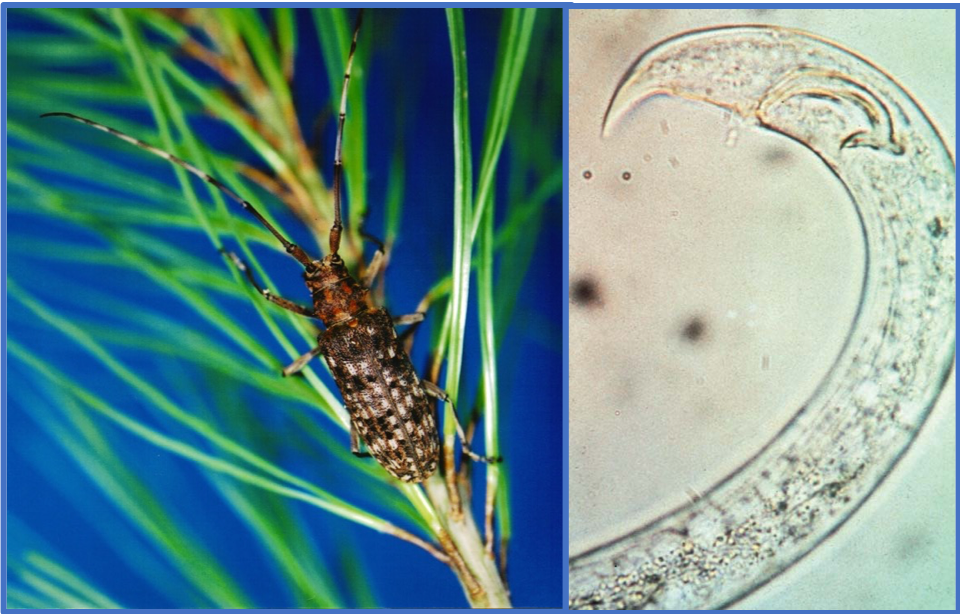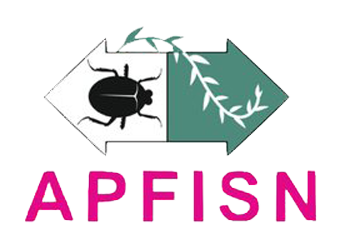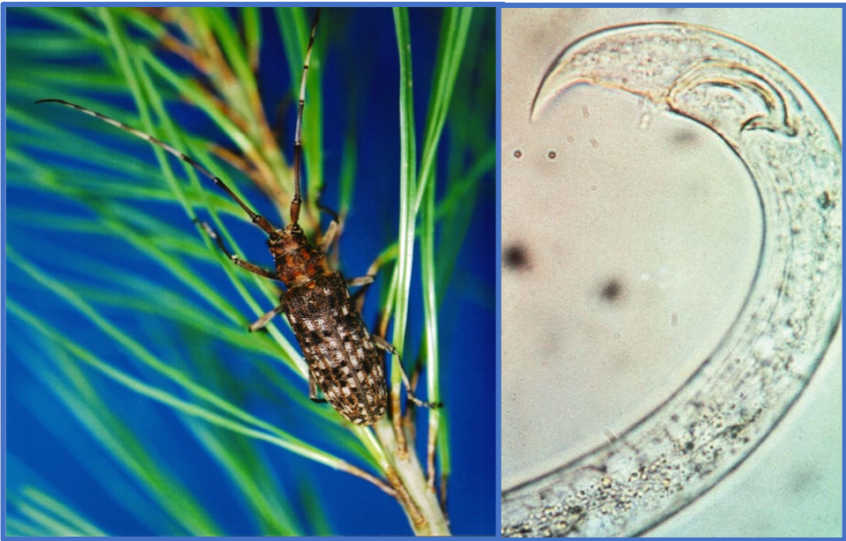
Asia-Pacific Forest Invasive Species Network
Training Workshop
PINEWOOD NEMATODE COLLABORATIVE: HOW TO IDENTIFY, DETECT, AND MANAGE PINEWOOD NEMATODE
23 – 27 October, 2023
Nanjing, China
Background
Worldwide, forests and forest plantations are facing new and increasing threats from insects and diseases. In some cases, the annual tree mortality caused by insects and diseases can far exceed other threats such as fire or floods. Apart from social and economic losses, these threats also pose negative consequences to the environment and native habitats. In an effort to address these problems, several training workshops have been recently held under the umbrella of the Asia-Pacific Forest Invasive Species Network (APFISN). For example, the APFISN Training Workshop on Forest Invasive Pests, was held in Haikou, Hainan, China in 2016 and another APFISN Training Workshop, Developing Skills in Forest Protection: An Integrated approach, was held in Beijing, China in 2018. The focus of these and other previous workshops was to provide a general working knowledge of the identification, survey and management of forest insects and diseases and weeds. Although useful, these workshops did not focus on a specific pest.
Over the last two decades, pinewood nematode (PWN), a destructive disease of pine forests, has caused significant mortality to many pine forests in northeast Asia and southern Europe prompting a global quarantine alert, which is affecting international trade. Pinewood nematode is vectored by cerambycid beetles (Monochamus spp.), which are the causal agents for spreading pine wilt disease (PWD). As more research is conducted and experience gained by PWN-affected countries, valuable tools are being developed to help survey, identify, and manage PWN. Even with this significant progress, there is still much more work to do to successfully manage PWD. It is under this situation that APFISN is supporting an informal Pinewood Nematode Collaborative where interested countries and entities can participate to share research and experiences and work together to find viable solutions to the damage caused by PWN.
As part of the PWN Collaborative, APFISN and its partners are sponsoring a training workshop to be held at Nanjing Forestry University, Nanjing, China from October 23-27, 2023. The workshop aims to provide hands-on training on properly identifying PWN based on signs and symptoms and DNA analysis; survey methods; and best management practices for PWN control. It is targeted at recent upper-level graduates and mid-level practitioners who are involved in forestry management, forest health monitoring, and management of forest diseases and their control, particularly PWN. The workshop will be held in conjunction with an IUFRO Pine Wilt Disease Unit 7.02.10 Symposium to share current research on PWN and to discuss operational management experiences between PWN-affected countries and interested entities.
The co-hosts include the Asia-Pacific Forest Invasive Species Network (APFISN), International Society of Zoological Sciences (ISZS) and Nanjing Forestry University (NFU). The supporting partners are The Food and Agriculture Organization of the United Nations (FAO), the U.S. Department of Agriculture (USDA) Forest Service, the State Forestry and Grassland Administration of China, and the Institute of Zoology, Chinese Academy of Science.
Objectives
The main objectives of this training workshop are to equip participants with the skills to:
- Recognize and identify the main signs and symptoms of PWD damage and symptoms in the field.
- Detect and diagnose PWN through various methods of sampling, identification, culturing, and specimen preservation, especially using DNA techniques.
- Manage and control PWN using various methods with emphasis on integrated pest management (IPM).
Participants
This training course is targeted at recent upper-level forestry graduates and practitioners, who plan to or will be involved in aspects of the pathology, detection, monitoring, management, and control of PWN. The target number of trainees is 15 participants. The number of participants from Asia-Pacific Forestry Commission member countries outside China will be selected depending on the available budget and relevance to PWD situation in their respective countries.
Working Language
The working language for the symposium and training course is English.
Location
The training will be held at the Department of Forest Protection, Nanjing Forestry University (NFU), Nanjing, China. During the training, participants will be able to visit the collection of forest pathogens at Nanjing Forestry University, and the nearby forests to survey, collect samples, and have on-site discussions to gain knowledge on the management and control methods of PWD.
Outcomes
Participants will be exposed to the current state of knowledge of PWN, including an overview of the basic biology and life cycle, disease survey and sampling methods, recognition of signs and symptoms caused by PWN, diagnosis especially using DNA analysis and laboratory techniques such as culturing, slide preparation and use of microscopes; and principles of PWN management and control, including integrated pest management (IPM). In addition to the hands-on training, participants will be provided with basic resource and reference material, useful web-links, contact information of participants and presenters, and other tools related to the training programme so they can use and share the information gained from the training programme and apply what they have learned at the workshop in their home countries.
Nominations for Training Course Participants
Participants should have an understanding of pathology, so they are at least familiar with general terms and biology of pathogens. Participant’s work should also be directly related to forest diseases or DNA analysis. Participants must submit a nomination form (below) to be considered for this training.
Meeting organizers will cover the cost of participants selected from Asia and the Pacific Forestry Commission member countries for air travel (direct round-trip economy class), registration and visa fees, hotel accommodation and meals during the meeting in Nanjing, China from 23-27 October, 2023.
Completed nomination forms are DUE to the APFISN Beijing Secretariat before May 15, 2023. Completed forms and inquiries should be sent to Madame Wenhua Xiong (iszs@ioz.ac.cn) and Dr. Simon Lawson (SLawson@usc.edu.au).
![]() Download the announcement and application form here
Download the announcement and application form here
Contact
Contact: Madame Wenhua Xiong (iszs@ioz.ac.cn), APFISN Beijing Office or ISZS Secretariat. Address: Room C-506, Institute of Zoology, Chinese Academy of Sciences, 1 Beichen West Road, Chaoyang District, Beijing 100101, China; Tel: +86-010-6480-7295; Fax: +86-010-6480-7295; or Dr. Simon Lawson (SLawson@usc.edu.au).

